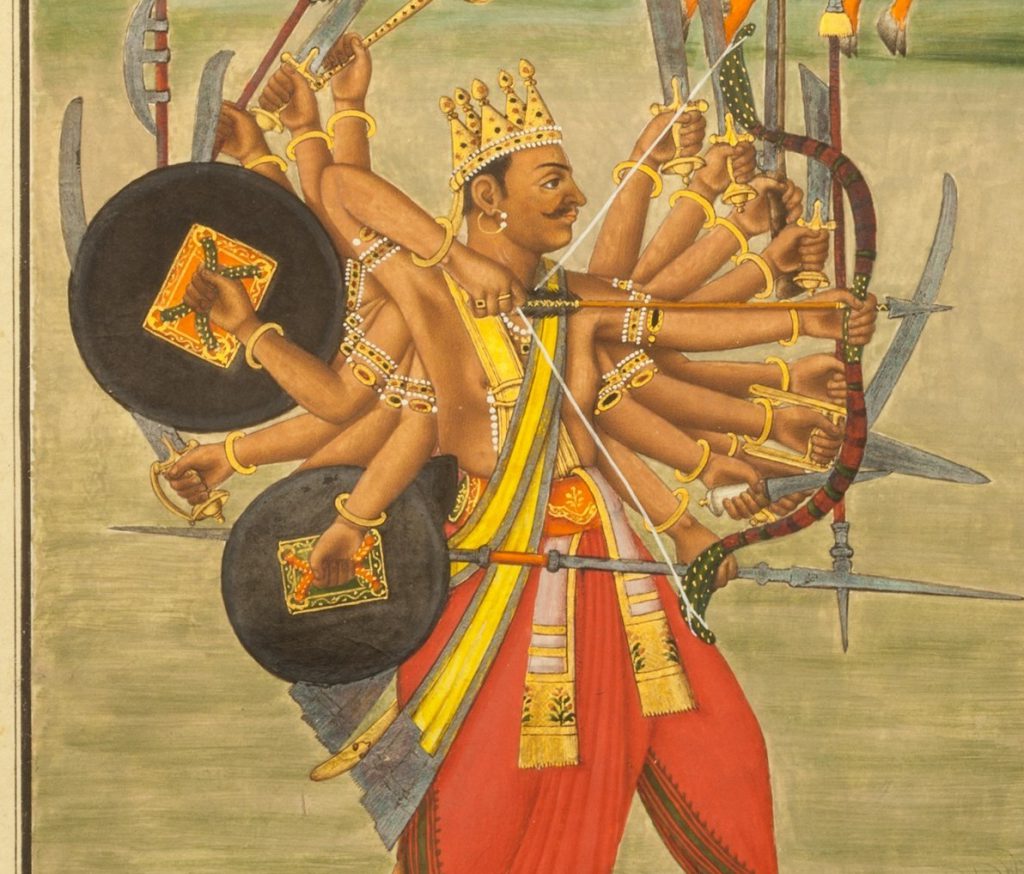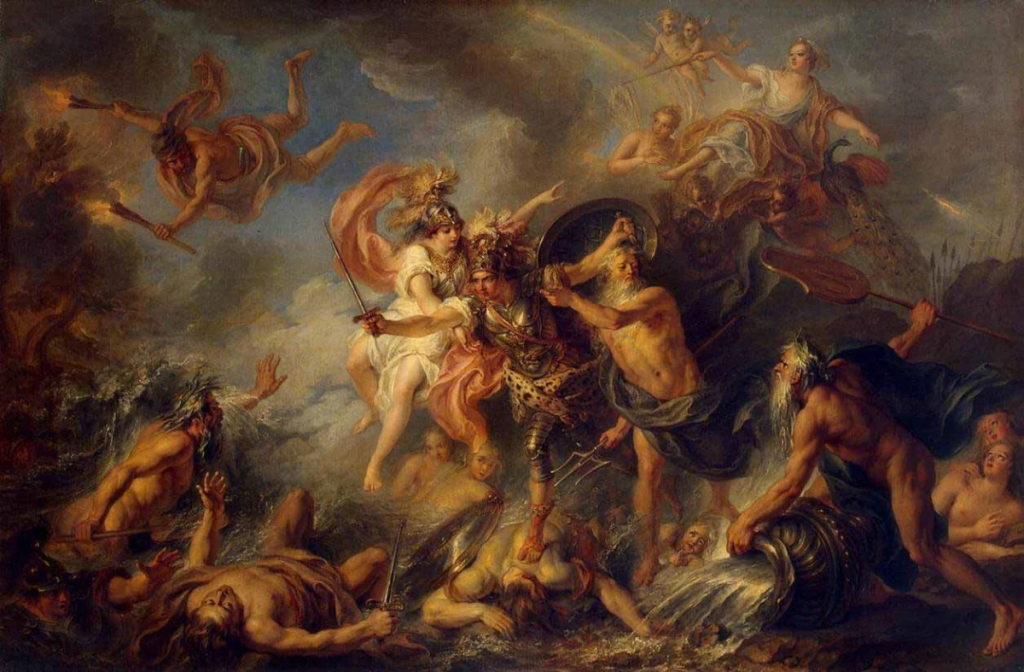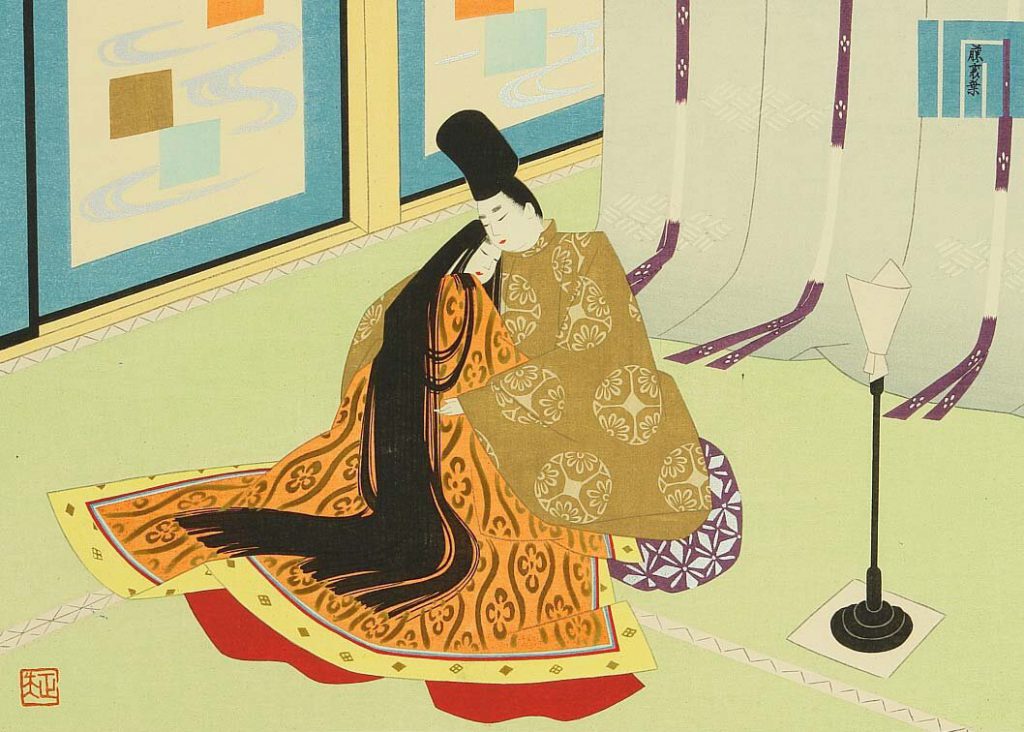Story VUONG AN NGUYEN
Photos INTERNET
The concept of masculinity finds a wide range of expressions in the art
Masculinity is often defined as a combination of characteristics and behaviors such as physical strength, decisiveness, courage, autonomy, competitiveness and emotional distance. But masculinity is not a fixed concept. It varies from society to society, and its different forms can be observed in the art of cultures such as ancient Greece, India and Japan.

TRAGIC HEROES IN GREECE
In 2019, the death of Iron Man (played by Robert Downey Jr.) in the film Avengers: Endgame, moved audiences with its cinematic representation of true heroism. Iron Man had risen in popularity thanks to his intellect and wit, in contrast to most other superheroes, and ultimately sacrificed himself to save the world. Interestingly, he shares much in common with Achilles, the hero depicted in Greek mythology and later in the Iliad.
Achilles represents an ideal of masculinity that has been portrayed in European art over thousands of years. He possessed superhuman strength, leadership skills and an indestructible body, reminiscent of Iron Man’s perfect armor. But Achilles also shared the same cleverness and multi-dimensional personality. In the end, the notoriously ruthless fighter laid down his life for his fellow soldiers by attacking Troy with firm resolve.
A complex personality is core to the masculinity of Achilles, keeping European artists steadfast in their pursuit of his figure as an ideal over the past millennia. Similarly, despite his invincible armor, Iron Man exposed his Achilles’ heel as he rushed to protect the universe before meeting a tragic end – a powerful depiction that echoes the past and still resonates to this day.
WISE HEROES IN INDIA
The heroes representative of Indian masculinity such as Ramayana (in the epic of the same name) and Arjuna (in the Mahabharata) are physically as strong as their European counterparts. However, what makes them strong and masculine in this context is their ability to contemplate, particularly to contemplate philosophically.
Arjuna and Ramayana possess the morality and talent to defeat evil forces and even deities in their tales. Arjuna’s signature masculinity is manifested in his 700 verses with Lord Krishna. There, wisdom made Arjuna determined to become a hero, to fight evil-doers with his supreme enlightenment and to accept the karma of killing.

Ramayana’s admirable masculinity, on the other hand, comes from the wisdom in his boundless love for Sita. His whole journey was guided by his ability to see through the beginning and end of karma. Ramayana and Sita ended up receiving blessings from the universe, with their greatest victory achieved not by force, but ultimately by contemplating how to be happy together forever.
Heroes such as Arjuna and Ramayana reveal how Indian masculinity does not solely come from the ability to act, but from the ability to reflect on life, moral reasoning and right conduct by understanding the law of karma. These two thoughtful heroes have had a far-reaching influence on modern India, including inspiring Mahatma Gandhi, who won India its independence through non-violent means, the wise hero Pandit Nehru and the great poet Gurudeva Tagore.
VULNERABLE YET PERFECT LOVERS IN JAPAN
Contrary to the powerful war heroes of Europe and India, Prince Genji Hikaru in The Tale of Genji, written by female writer Murasaki Shikibu, was a gentle and emotional man who even burst into tears for love. Such characteristics may seem to be the opposite of masculinity, but they are exactly what have made Genji so desirable to many Japanese readers over the thousand years since the Heian period (794-1185).

Although in Heian society, it was acceptable for a man or a woman to have multiple lovers, Genji stood out with consideration for his partners. The section of the tale which Japanese women find most charming and highly masculine is when Genji was sent into exile on Aware Island. He did not say a word about his suffering but instead expressed himself verbally through a classic poem:
“mono no aware (bittersweet realization of the ephemeral nature of all things)
whispering waves under the moonlight I’m left with myself”
While not having an invulnerable body or a towering intellect, and despite not accomplishing any epic feat, Genji has managed to become an ideal male figure for his pure heart and delicate emotions. As the Sengoku/Shogun period arrived, another male figure, the samurai, failed to dethrone Genji as the icon of masculinity among folk aesthetic lovers. In the present day, gentle masculinity is a movement that is celebrated not only in Japan and Eastern countries but also across the world. It has become a new concept of modern masculinity.










